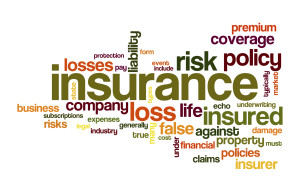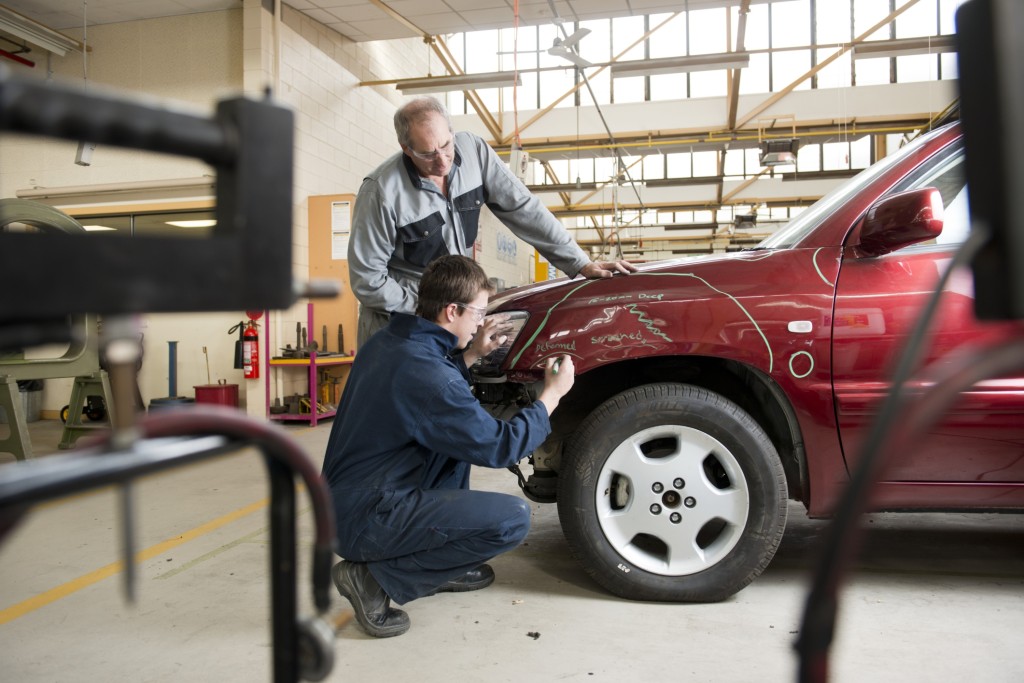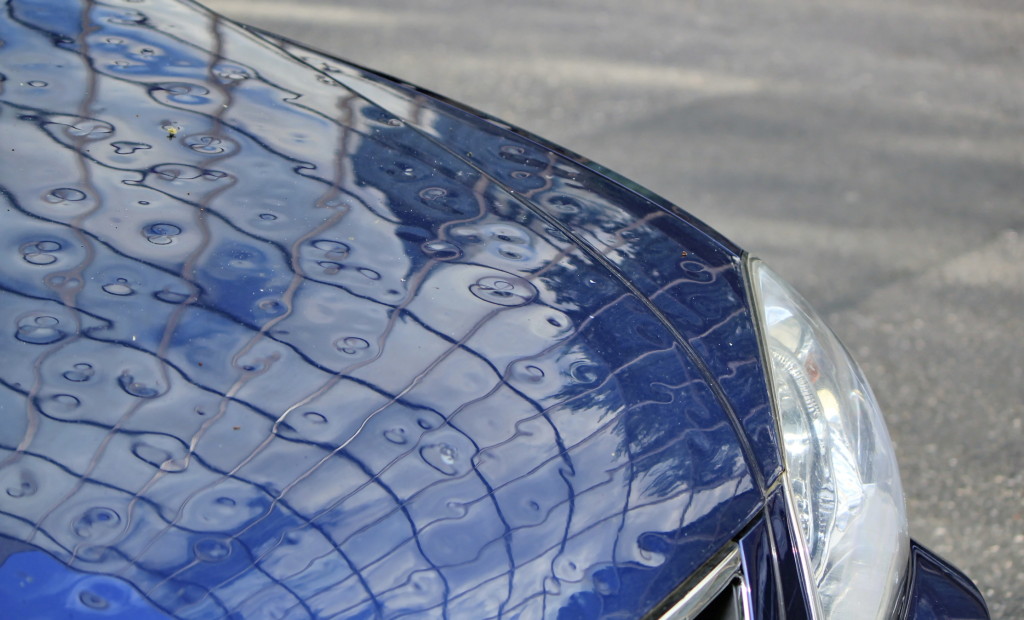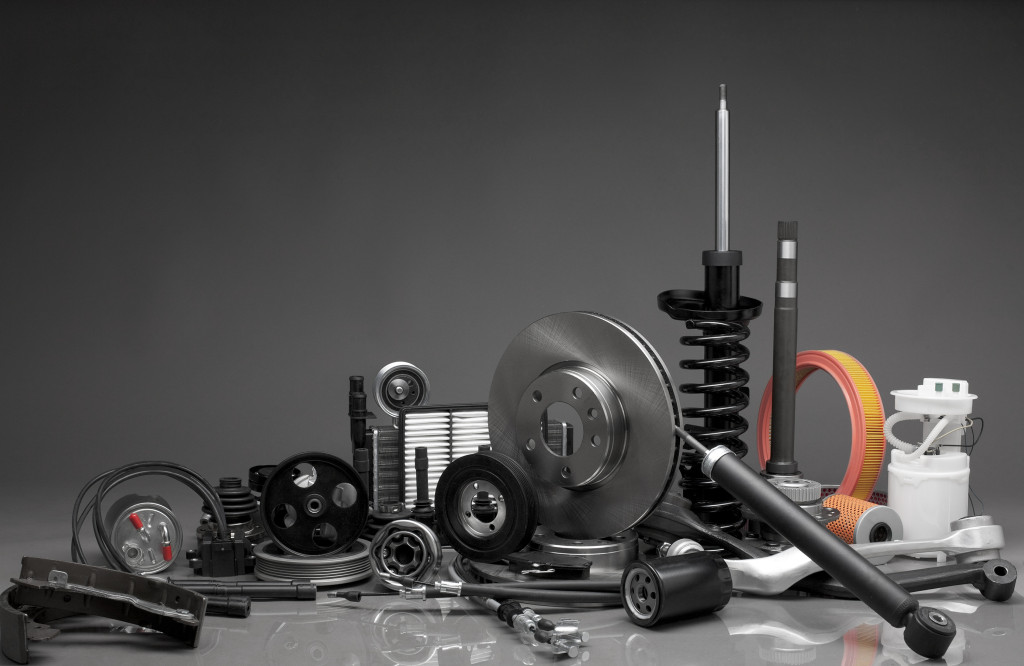
4 things to consider while insuring your auto body shop
By onBusiness Practices | Insurance
Sadly, it seems as though every week carries a story of an auto shop damaged by fire.
- On Jan. 17, George’s Auto Body in Blauvelt, N.Y., was destroyed by a fire that was aided by the gasoline inside, according to the Journal News. Several cars inside also, as you might expect, suffered major damage. No one was injured.
- A fire Jan. 10 fire in Bessemer, Ala., rendered a commercial building housing a body shop a “total loss,” the fire chief predicted to AL.com. The name of the business wasn’t reported. No one was injured.
- A smaller fire Jan. 8 burned through the skylight of the Earl Tindol Ford body shop in Gastonia, N.C., the Gaston Gazette reported. No one was injured, and the cars didn’t appear to have been damaged too badly, based on the newspaper’s report.
Our sympathies are with these shops after these incidents, which highlight both a hazard of the trade and the need for collision repairers to have the right insurance coverage.
More RDN insurance coverage:
Personal Analyst: Google might get into car insurance-shopping business
Bloomberg: Detroit considering own insurance agency over high prices

Gerald Cecil, vice president of sales and marketing for Arrowhead General Insurance Agency, presented on insurance considerations for auto body shops at a Society of Collision Repair Specialists Open Board Meeting earlier this month in Palm Springs, Calif. (Provided by Gerald Cecil)
Gerald Cecil, vice president of sales and marketing for Arrowhead General Insurance Agency, presented on insurance considerations for auto body shops at the Society of Collision Repair Specialists Open Board Meeting earlier this month in Palm Springs, Calif.
He also has provided a detailed commentary on the subject to SCRS. Read it here. Also, shops can inquire with the Society of Collision Repair Specialists at info@scrs.com for a copy of a business insurance checklist.
Repairer Driven News caught up with Cecil on Tuesday to further discuss collision repair business insurance. Here are four highlights:
Recognize insurance nuances
Insurance is a dry subject, but an important one to study and get right. Shop owners know auto body repair and car insurance, but they can be unfamiliar with what kind of coverage is best for protecting their business while keeping costs low, Cecil noted.
“Because insurance is only purchased one time a year, there’s a skillset that they never necessarily develop,” he said.
It’s important to vet what your coverage actually provides and not just carry a policy over from year to year, Cecil said, likening the alternative to “doing a job off of somebody else’s estimate”
“In our opinion, you can’t afford not to make the decision to get the best you can for your organization.”

Collision repair business owners know how to fix a vehicle covered by car insurance, but they might not be as informed about what can cover their business. (Peter M. Fisher/Fuse/Thinkstock)
Fortunately, according to Cecil, the board meeting audience didn’t seem to be surprised by his speech or seek a lot of clarification afterward, indicating that some of the industry had done its homework or that the information already provided to them had sunk in.
The rest of you, pay attention:
Garagekeepers versus garage liability
Two key components of a collision repair shop’s insurance portfolio are garagekeepers and garage liability insurance. Here’s a review for anyone who’s less familiar with them.
Garagekeepers covers damage to the customer’s vehicle while it’s in your care. It doesn’t include the items inside the vehicle; that’s an additional cost. (Make your customer clean out their stuff, Cecil suggested.) Three subsets of it are common:
- Direct primary, which costs more, covers a customer’s vehicle even if whatever happened wasn’t your fault. (A river nearby floods your storage lot. It’s good PR to pay for the damage to the customers’ cars even if it wasn’t your fault.)
- Excess covers whatever the customer’s comprehensive doesn’t.
- Legal liable, the most basic, covers everything that is your fault. (An employee whom you’ve now fired scratches an undamaged part of the car during the repair process.)
Garage liability covers everything else that happens to the customer or employee on the premises — slips and falls, discrimination, complaints with your work, etc. (This doesn’t include worker’s compensation insurance, though.)

You can buy insurance that will cover damage at your shop to a customer’s car that wasn’t your fault, such as hail dents. (Elenarts/iStock/Thinkstock)
Property insurance
Your shop itself is covered by property insurance. The important thing to consider here is if you’re going to cover the true cost of your business and items inside or the depreciated cost of it all should something happen. The decision is between:
Replacement cost will pay what it’d cost to replace your stuff today (assuming you’ve kept adjusting the payout cost for inflation).
Actual cash value will pay for the depreciated value of your building and goods. Anyone who’s ever had a customer realize just how little their car is worth under depreciation formulas can recognize the implication (though buildings don’t depreciate as quickly). So if you’ve been in business for years and Godzilla steps on your shop, you might not get enough of an insurance payout to reopen somewhere else. On the other hand, this way can be cheaper.
It comes down to taking a hard look at what you can actually afford to lose in terms of premiums, deductible, and payout.
Cecil noted that buying insurance tends to be premium-price-driven — “in all fairness, what can one expect” — but that approach can prove painful when it comes time to cash in the policy. (Something collision repairers already know after a couple of customers get upset the insurer won’t cover all of the damage.)
Caught in the crossfire
It’s also important to ensure that you are only on the hook for the things you did — and not for the other parties involved in a typical collision repair. If a customer is upset by something that’s really an insurer or parts manufacturer’s fault and decides to lump you in with them in a lawsuit, you’d better make sure they’re insured and you all have cross-indemnification.

Make sure you, the auto insurer, and the parts manufacturer are all indemnifying each other during a repair operation. (Yury Hrynevich/iStock/Thinkstock)
“That’s a normal risk management technique,” Cecil said. So don’t be uncomfortable asking about this and to see a certificate of insurance before you do business with someone.
This issue can be complicated further if you’re part of a direct repair program, and Cecil particularly recommended having a shop attorney and insurance agent look over the agreement carefully in that case.
In that vein, this article is intended as a jumping-off point. Take the time to do the homework and talk to different insurers yourself about your needs and your policy. If you never have to file a claim and all that research was for nothing — you’re lucky.
